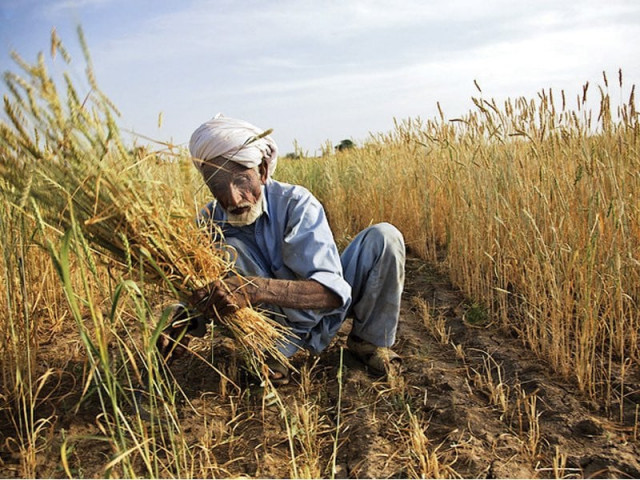Small farmers quitting amidst high inflation, climate change threat
Many believe that it is much more profitable to sell land to housing schemes than grow produce

Rising inflation and the threat of climate change has battered those who grow the fresh produce we consume on a daily basis; which has resulted in them either quitting farming altogether or finding new ways of generating a passive income.
Small farmers are the worst affectees of the inflationary wave and climate change as they do not have the cash or techniques to produce the perfect crop every cycle, therefore they are now bidding their goodbyes to what was once considered a profitable profession.
“Agriculture was a profitable industry until 1990. No one could even think of selling their agricultural land and those with 4 to 5 acres of land were considered wealthy,” remarked Farhan Shaukat, a farmer from Narowal. Then the government’s priorities shifted to focus on industrialization and agriculture took a backseat, as per Shaukat. “This focus is still in place today and proof of that are the shrinking agricultural areas.”
Now farmers in Punjab, which is the agricultural hub of the country, are giving up their lands to housing schemes to net money and invest it elsewhere just to survive. “It is a pity that farmers are being forced by inflation to give up their lands. How does it reflect on us that an agricultural country is now importing 3 million metric tonnes of wheat?” Shaukat inquired.
When asked if there was any hope of resurrecting the agriculture industry, Shaukat was of the view that there was no room for small farmers anymore as international corporations had taken over. “Only these big corporations erect agricultural farm houses now. They earn handsomely by purchasing government-subsidised machinery, medications, and fertilisers, while the common farmer is left to fend for himself.”
Similarly, Sardar Saifullah, a farmer from Padhana, which is near the Lahore border, also thinks that it has become awfully tough to be a farmer in an agricultural country due to political and economic factors. Talking about the costs to small farmers, Saifullah who primarily plants rice, states: “Rice production requires one sack of diammonium phosphate (DAP) and nitrophos, and two sacks of urea per acre of land. DAP costs Rs 10,600; nitrophos Rs 6,500 and urea Rs 2,500. Expenses like land preparation, poisons, sprays, and water are separate. So what small farmer in their right mind would spend such money to make mere pennies?”
Keeping the large costs in mind Saifullah believes that giving up land to housing schemes is a better alternative. “Some farmers are now also renting out their lands to other farmers just so they do not have to pay out of pocket,” Saifullah said matter of factly. When asked how much could one make in rental income, he informed that 1 acre of agricultural land near the border could fetch one anywhere from Rs 35,000 to 40,000 annually.
On the other hand, Agronomist Aamer Hayat Bhandara, is of the view that the worst is still yet to come for the agricultural industry if traditional methods are not let go. “The sector has been impacted by rising agricultural revenue prices and climate change. Pakistan has been hit worse than other nations since we haven't invested in agricultural research and development.” Bhandara was of the view that the governments past and present only help the consumer, not the farmers who grow the crops and that is where the problem lies. He suggested that using technology in agriculture was the only way forward and that the government should help establish digital camps at the village level where farmers could learn about current weather conditions, smart fertiliser applications, automatic irrigation systems, sensors, and most importantly, the best ways to access the market to sell their products “Farmers must realise that regardless of which government is elected, inflation will keep rising, and there are additional climate change implications to contend with. In these conditions, we must adopt a digital or smart agricultural culture,” Bhandara told The Express Tribune.
Published in The Express Tribune, July 23rd, 2022.



















COMMENTS
Comments are moderated and generally will be posted if they are on-topic and not abusive.
For more information, please see our Comments FAQ